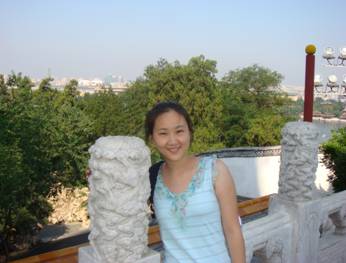乐思伟简介

乐思伟,商务英语研究博士点商务文化与交际研究方向博士生。学术兴趣主要包括跨文化商务交际学、跨文化商务管理等相关领域。目前选题范围着眼于商务语篇中体现的跨文化商务交际特征,侧重考察非传统的交际方式如新媒体环境中的商务文化及跨文化商务交际活动。跨文化交际学长久以来占据着跨文化商务交际学研究的理论核心地位。自Edward Hall在《无声的语言》中首次提到了用跨文化交际学手段处理跨国商务活动中的文化冲突问题,Hofstede, Schwartz, Trompenaars, Hampden-Turner等人先后创建了各自的文化维度理论、文化价值取向模式等,大大加速了跨文化交际学的理论发展。这些理论的形成不乏对商务环境中的跨文化交际活动的研究,跨文化交际学的理论成为之后跨文化商务交际研究的主要理论源头之一。跨文化商务交际学是跨文化交际学与管理学的交叉学科,前期研究以跨文化交际学为主要理论框架,后期以Varner的跨文化商务交际概念模型为框架展开多维度动态研究。她热衷于从事商务文化和跨文化商务交际研究,早期论文主要关注商务语篇中的文化传播问题如《功能主义视角下的中式菜肴简介英译》《Functionalism Theory Applied in C-E Translation of Chinese Food Culture text》都从跨文化交际的角度探讨旅游经济中的饮食行业的文本翻译问题。另有《从联想对IBMPC的收购看文化融合中的冲突与对策》探讨跨国并购行为中的文化融合和跨文化管理问题。曾于2009-2010年间先后游历法国、意大利、英国等国家,从旅游经济、教育制度等方面进行走访和了解,增强了跨文化交际意识并收集到一手的语料。
通过阅读跨文化交际和跨文化商务交际的相关文献,梳理了目前跨文化商务交际研究的整体脉络,并掌握了统计学方法、语料库研究相关技术和简单编程方法,为进一步的理论研究和实证研究做了必要的准备。跨文化商务交际学作为一个新兴的学科,目前研究的理论发展尚为形成成熟、丰硕的成果,因而要进行深入的研究需要前期进行大量的文献收集及阅读工作,并带有强烈的问题意识和创新意识,分别从通读跨文化交际学理论、跨文化交际视角的语言研究、管理学文献开始着手。给有志于进行本方向研究的博硕士生的建议是视野要广,研读要深,并伴随实操性的学习活动加深理论理解和运用。
Yue Siwei, Doctoral Student in Business English Studies, has conducted her research in Cross-Cultural Business Communication, Cross-Cultural Business Management. To prepare for her Doctorate Dissertation, she now focuses on the representation of Cross-cultural Business Communication on business discourse. She specifies the research on the unconventional communication channels such as New Media Mediation Business Communication. The theories of cross-cultural communication have always been the core theoretical framework for studies of cross-cultural business communication since the emergence of the concept. Edward Hall proposed in The Silent Language that cross-cultural communication theory can be employed to tackle cross-cultural business communication failures. This idea has been developed by Hofstede, Schwartz, Trompenaars, Hampden-Turner in terms of their respective value dimensions, two of which are based on empirical studies among business professionals in companies. Cross-cultural business communication is positioned as the interdisciplinary field between cross-cultural communication and business management. Traditionally, it is approached from cross-cultural communication perspective while the trend now gradually turns to Varner’s concept model, a multi-dimensional and dynamic model.
Attracted by the studies on cross-cultural business communication, she has published several articles about the dissemination of nation’s culture in the translation of business text both at home and abroad such as Functionalism Theory Applied in C-E Translation of Chinese Food Culture Text. Concerning cross-cultural business management, she discussed organization culture synergy of MNC’s acquisition in her ariticle Conflict and Countermeasures in Cultural Integration-A study of Lenovo’s Acquisition of IBM PC. To experience diverse culture, she visited France, Italy and Britain for several months, during which knowledge of these nations’ educational system, folklore was acquired and study materials was collected. Now she has been working hard on reading literatures, learning Statistics, SPSS, corpus technique and basic programming language. The suggestions for research fellows and postgraduates would be the intensive reading of literatures in fields like cross-cultural communication, management. Besides, staying open-minded and creative is also essential to studies on interdisciplinary and comparatively young topics. She believes the most efficient way to make academic progress is learning by doing.
